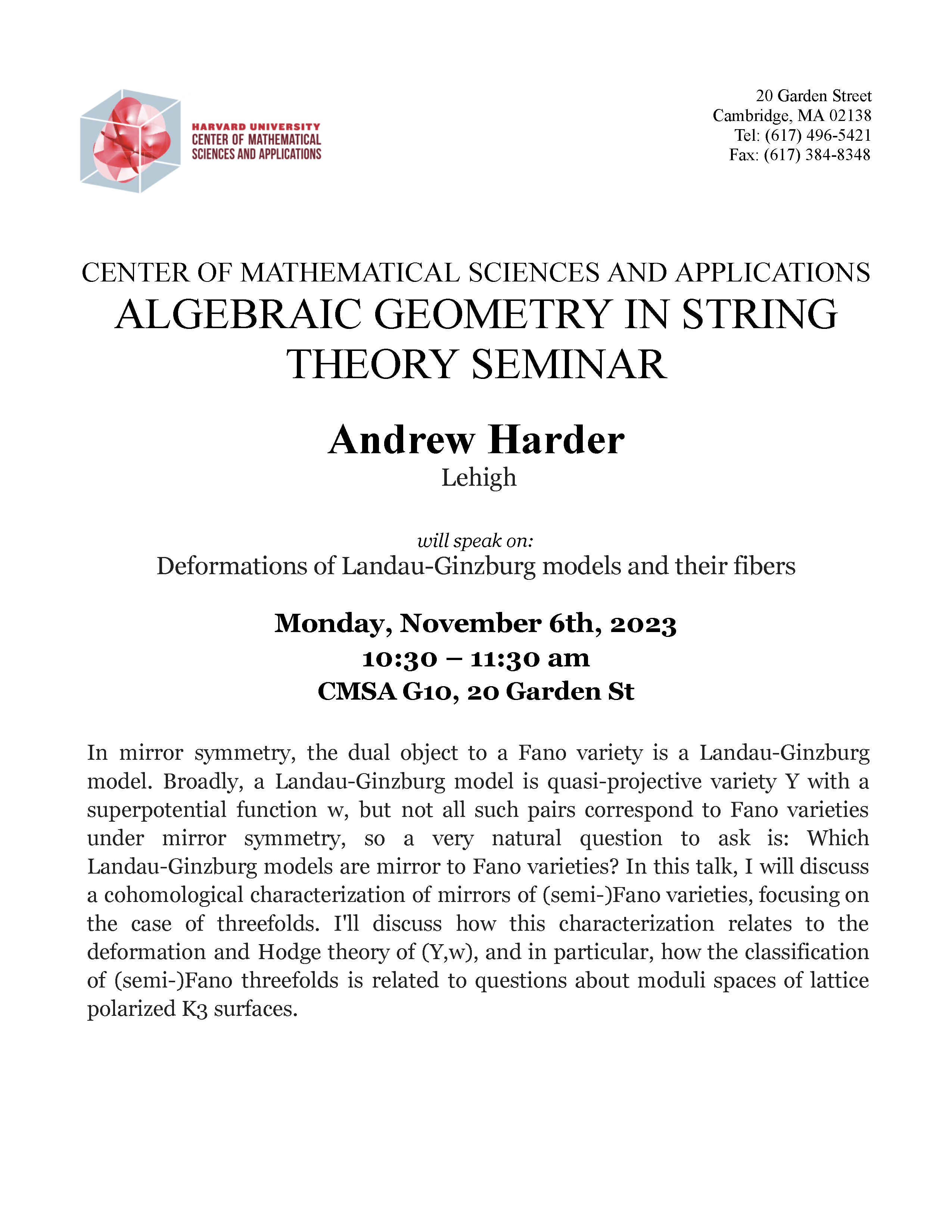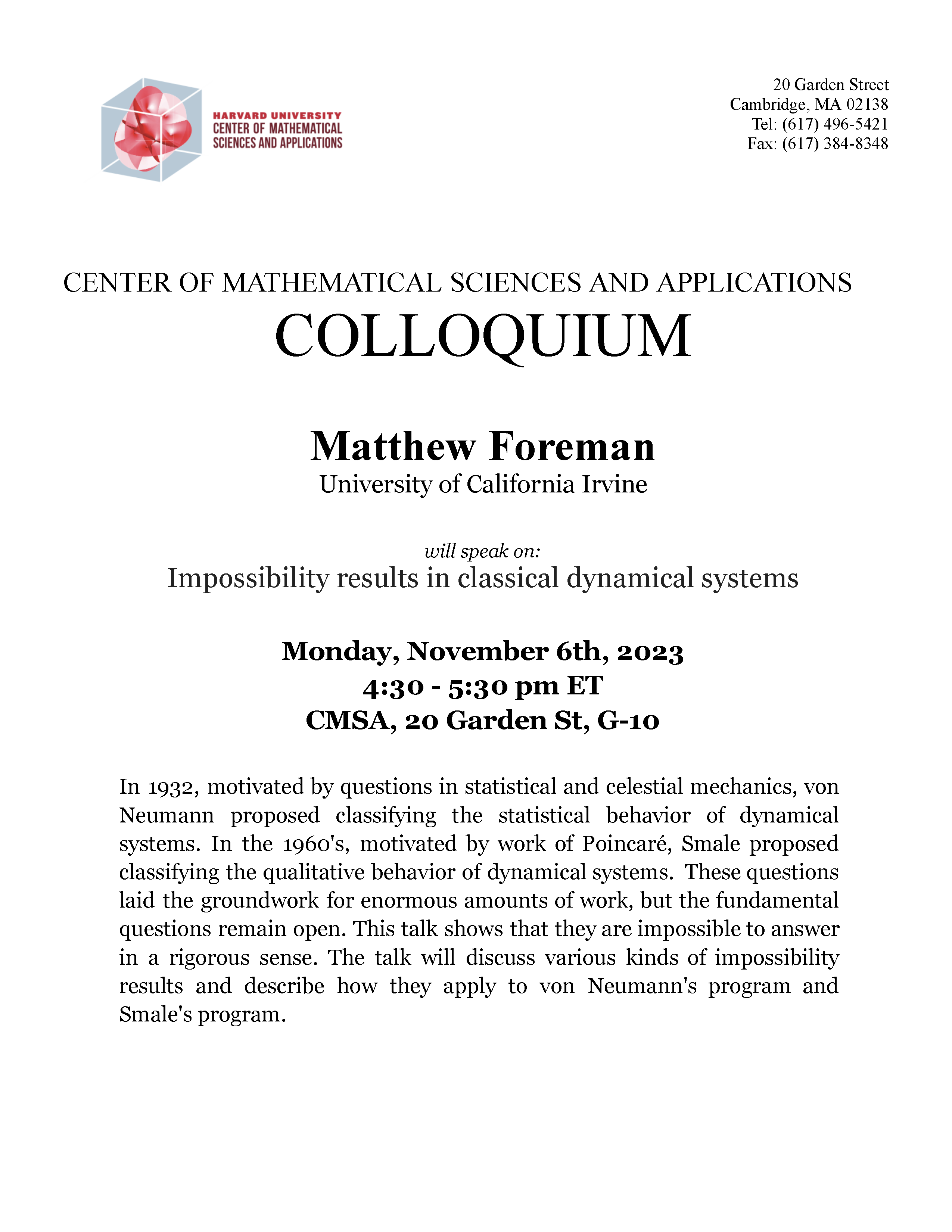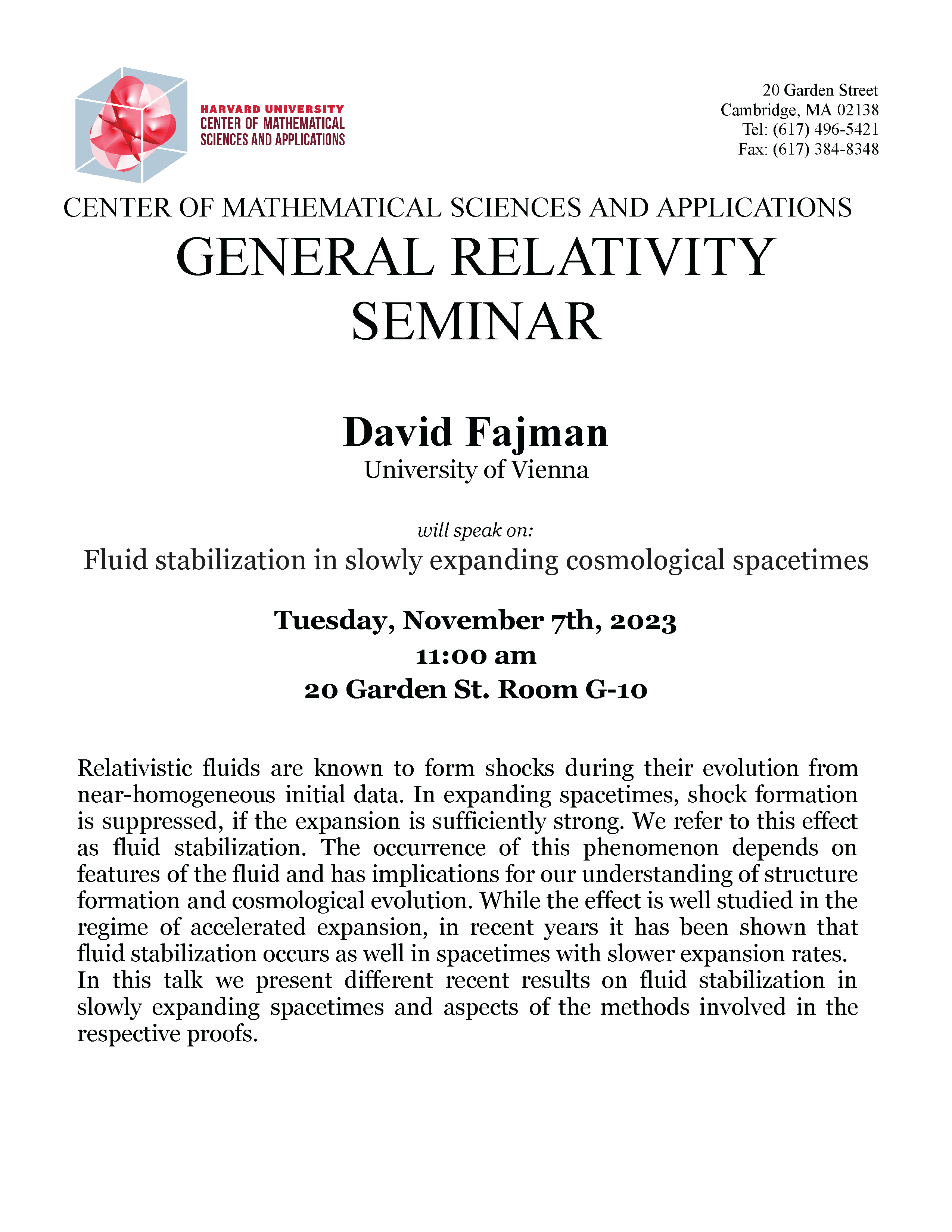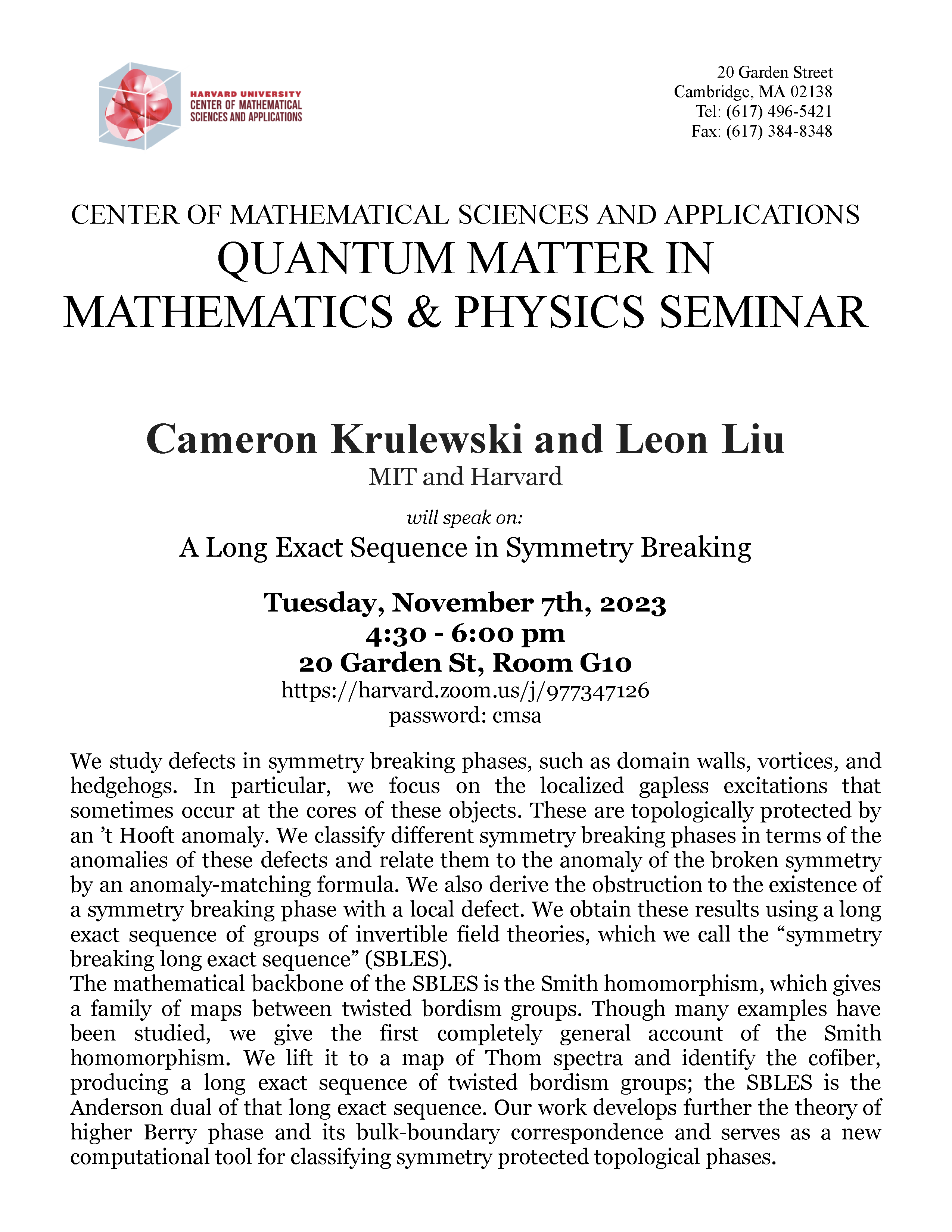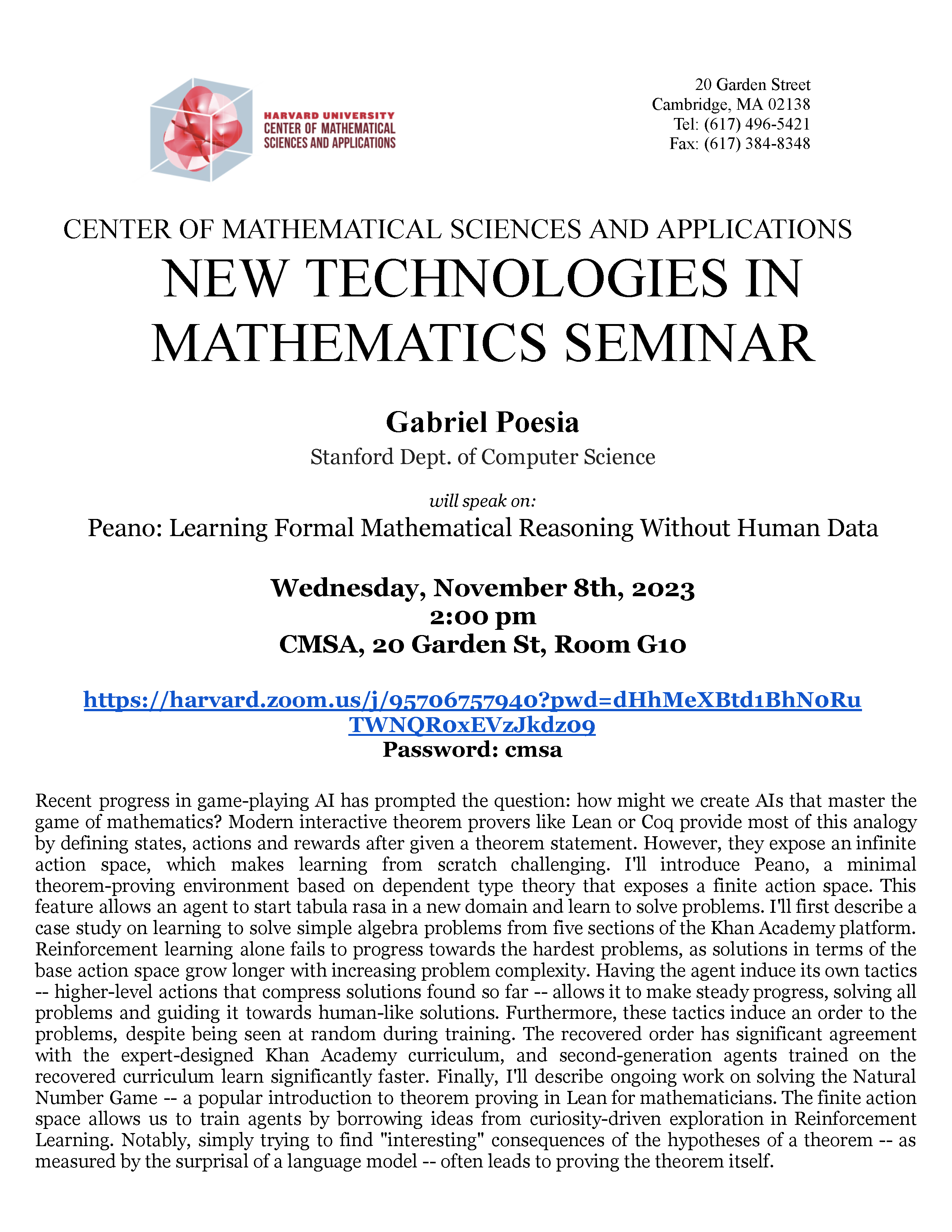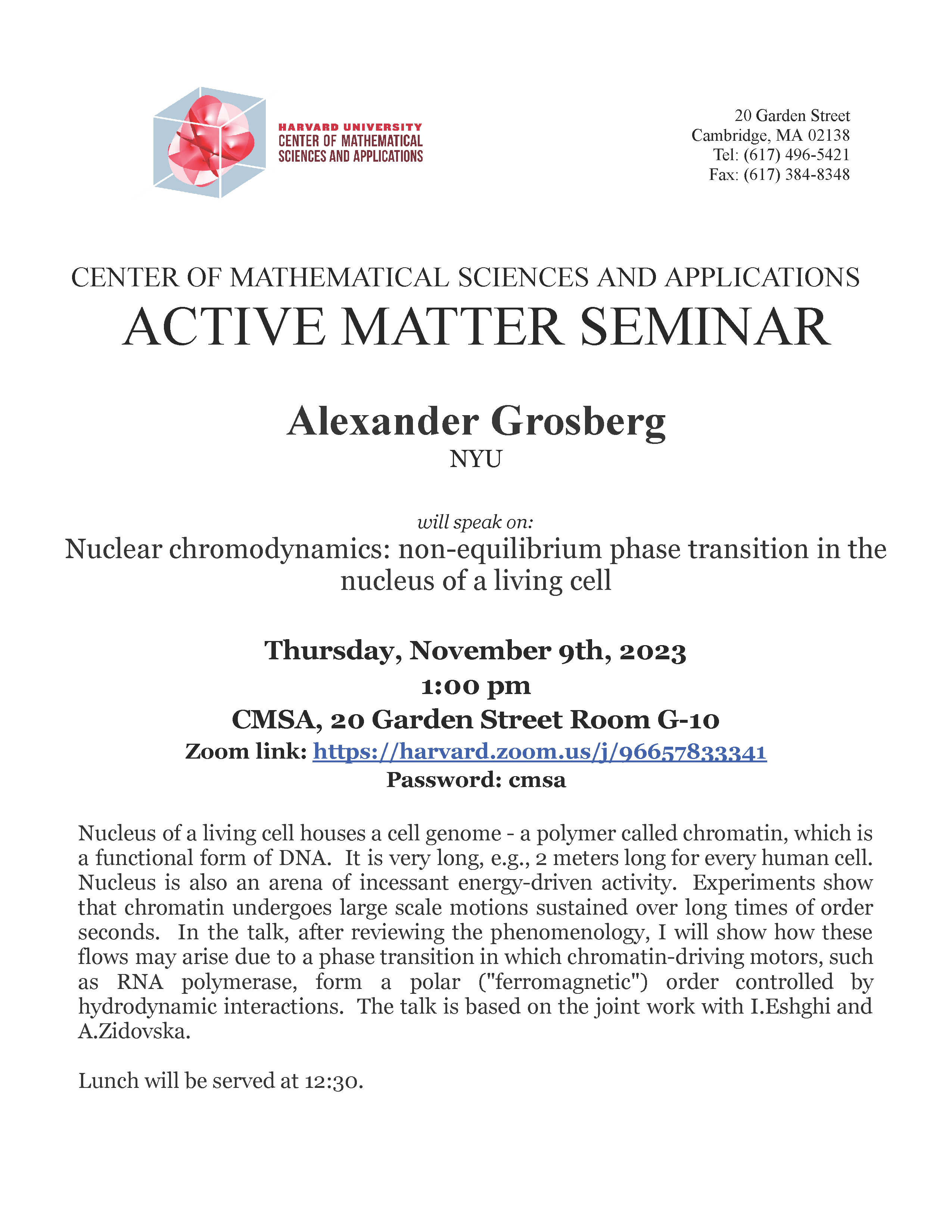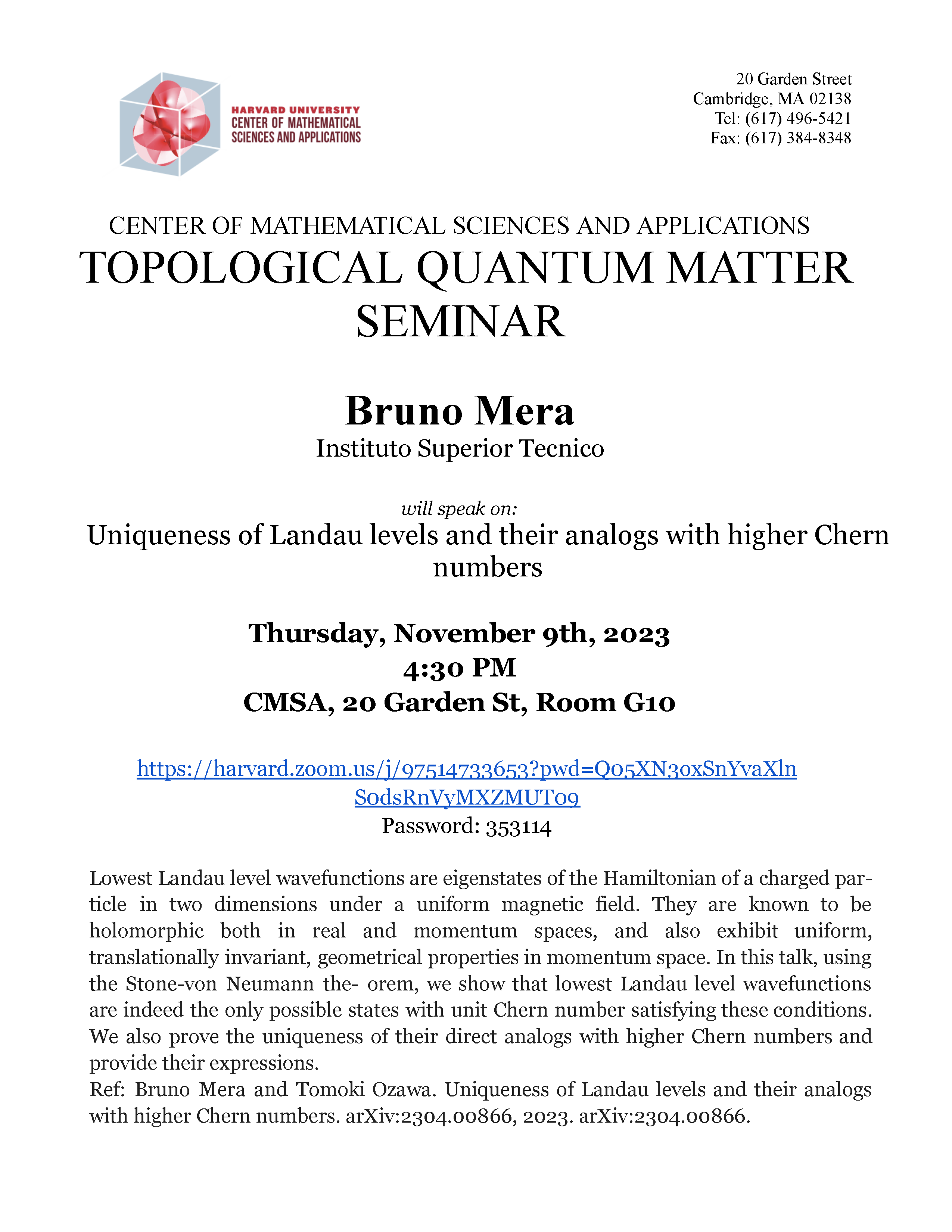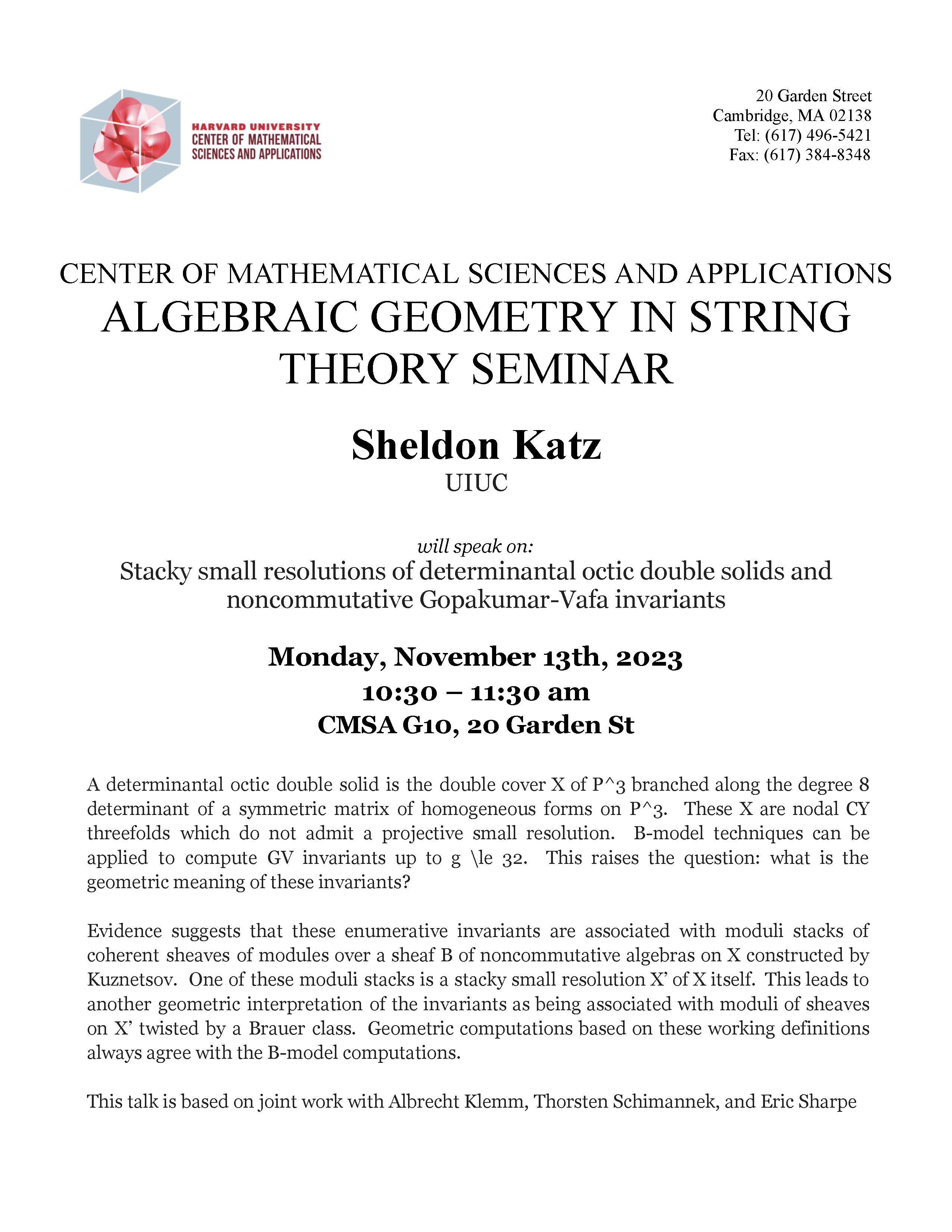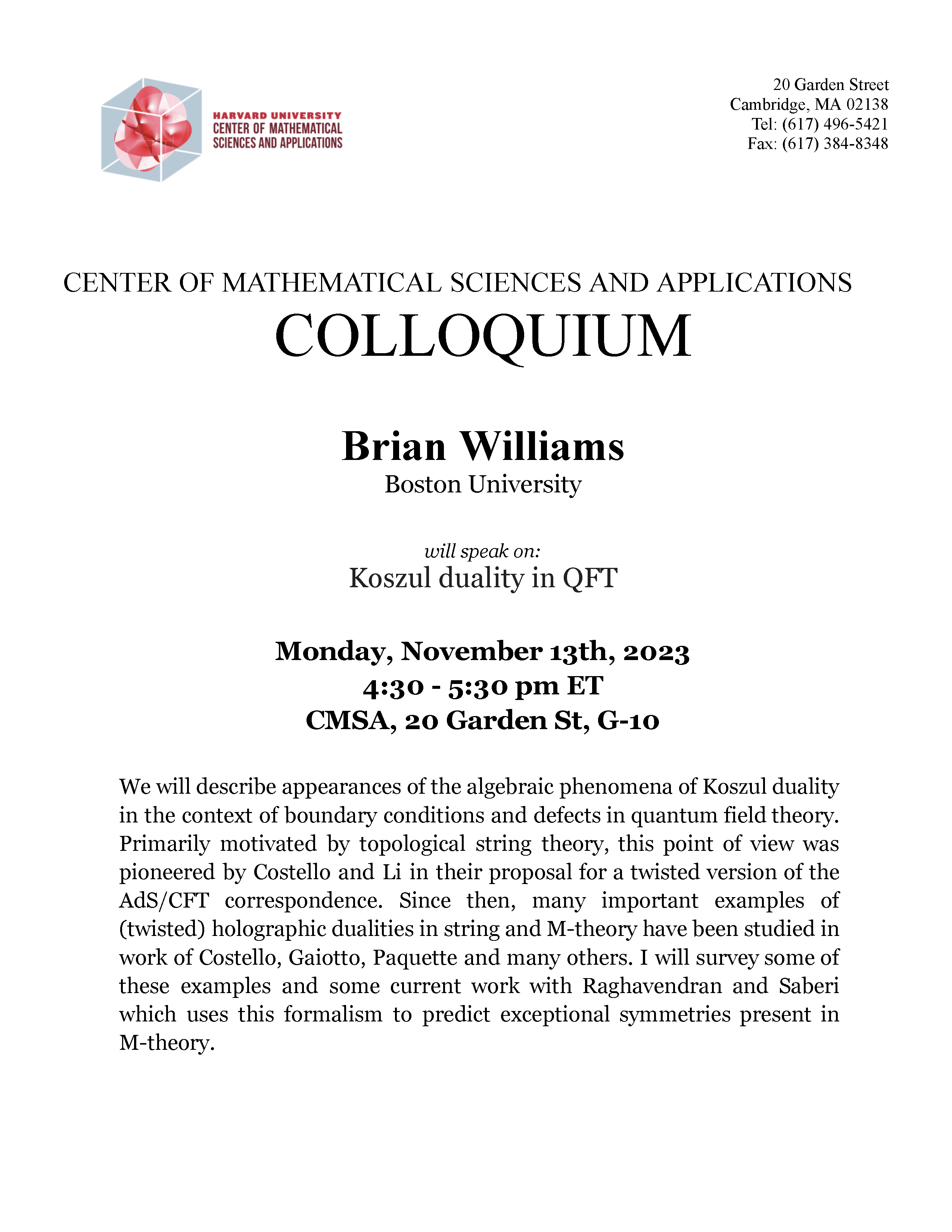Deformations of Landau-Ginzburg models and their fibers
CMSA Room G10 CMSA, 20 Garden Street, Cambridge, MA, United StatesMember Seminar Speaker: Zi Yang Kang Title: Deformations of Landau-Ginzburg models and their fibers Abstract: In mirror symmetry, the dual object to a Fano variety is a Landau-Ginzburg model. Broadly, a Landau-Ginzburg model is quasi-projective variety Y with a superpotential function w, but not all such pairs correspond to Fano varieties under mirror symmetry, so a […]

